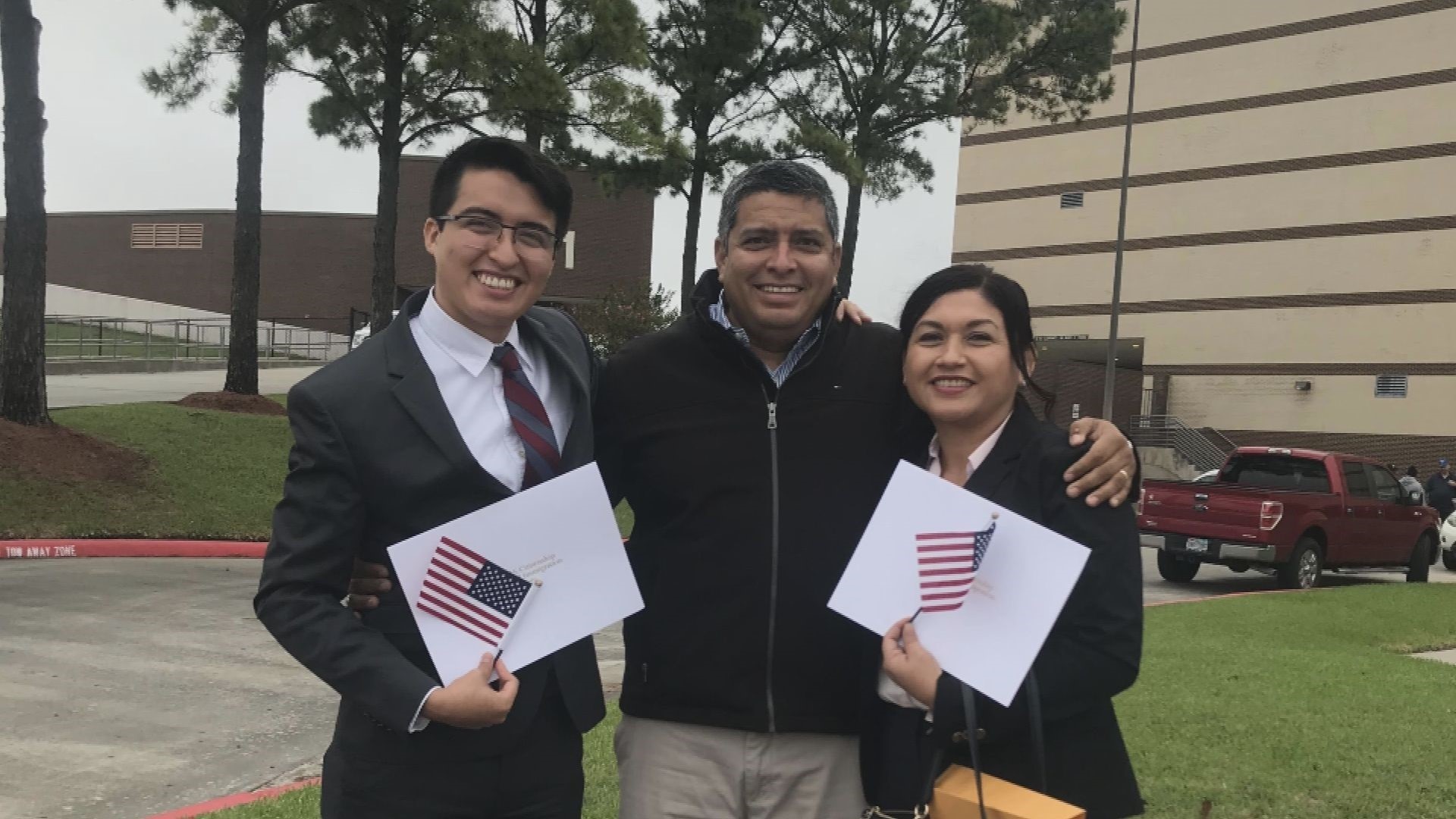WACO, Texas — Immigration is a polarizing debate in the U.S. and has played out on the national stage for months. This month, President Trump touched on the issue in the State of the Union Address.
According to the Department of Homeland Security, about 700,000 people become naturalized U.S. citizens every year. However, achieving the American dream isn’t an easy process. It can take years and cost thousands of dollars.
That was the case for Mario Lopez Martinez, a Baylor student and naturalized U.S. citizen.
"We crossed with nothing really. My parents came seeking opportunity here,” Martinez said.
He arrived in the U.S. from Mexico with his parents and two siblings when he was 5 years old, leaving everything he knew behind.
"It took years for us to acclimate and to not feel so lonely,” Martinez said.
In 2008, after years of struggle, his dad's boss gave them a glimpse of hope by sponsoring him and his family to become legal residents. That process took them five years.
"It’s crazy how many thousands of dollars, how many thousands of hours we had to spend suffering and struggling for a piece of plastic that says you're legally allowed to be here,” Martinez said.
Baylor Law professor Laura Hernandez said there aren’t many right steps on the path to citizenship and much less to become a permanent resident.
"It's very complicated and it is very limited,” Hernandez said. “There are only three general categories."
Those categories include:
- Appropriate family connection, which means being related to a U.S. citizen or green cardholder.
- Employment sponsorship, meaning a U.S. corporation agrees to sponsor you.
- Lottery diversity category, which the U.S. provides to countries who don’t send many of their citizens for residency status.
If you’re eligible to become a permanent resident, you must wait five years to become a citizen. Then you must interview with the Department of Homeland Security and take a civics exam.
That’s exactly what Martinez and his family did. In 2018, he reached a milestone he had been longing for, becoming a naturalized U.S. citizen and attending his swearing-in ceremony.
"It's the only process to go through, you know, there's no shortcuts, there's no ways to get around this,” Martinez said.
A Baylor Law School immigration clinic helped him and many others with the process. Jessenia Ruiz, one of the organizers said even for those who are eligible to become citizens, many still live in fear.
"Most people are scared to call the naturalization clinic, they're scared to seek help because they don't want to do anything that can jeopardize their opportunity to be here,” Martinez said.
The path to citizenship was designed to take years. Hernandez said everyone on it must maintain good moral character to prove they belong in the U.S.
"When you talk to the individual applicants and their stories, and their paths to the United States, and how hard they work, and how they contribute to our country, you can't help but say, 'Yes we want this person to become one of us, to become a citizen,'” Hernandez said.
Legal immigration can take decades and Martinez said he wants to be an example for others while continuing to prove himself as a U.S. citizen. He said he wants people to know that immigrants are equal to those who might judge them.
"There are hundreds of thousands of people who are just as hard-working as them, just as intentional about being a good person as them, and we all want the same things you know. We're all trying,” Hernandez said.
Baylor Law School will host another immigration clinic on March 28.
Also popular on KCENTV.com:
TPD officer Carmen DeCruz charged in death of Michael Dean:

